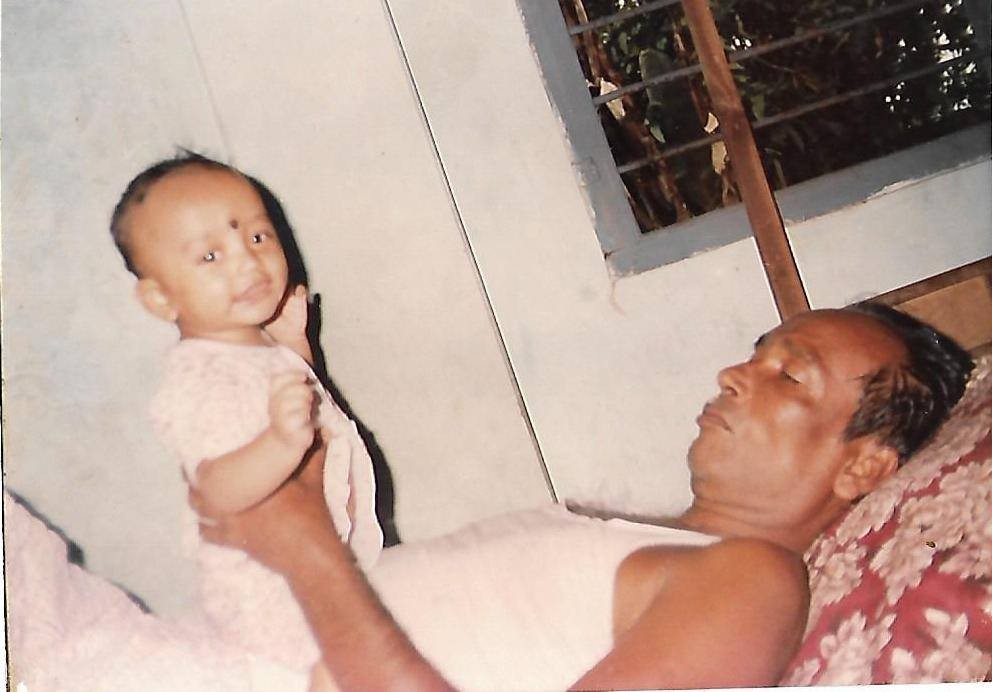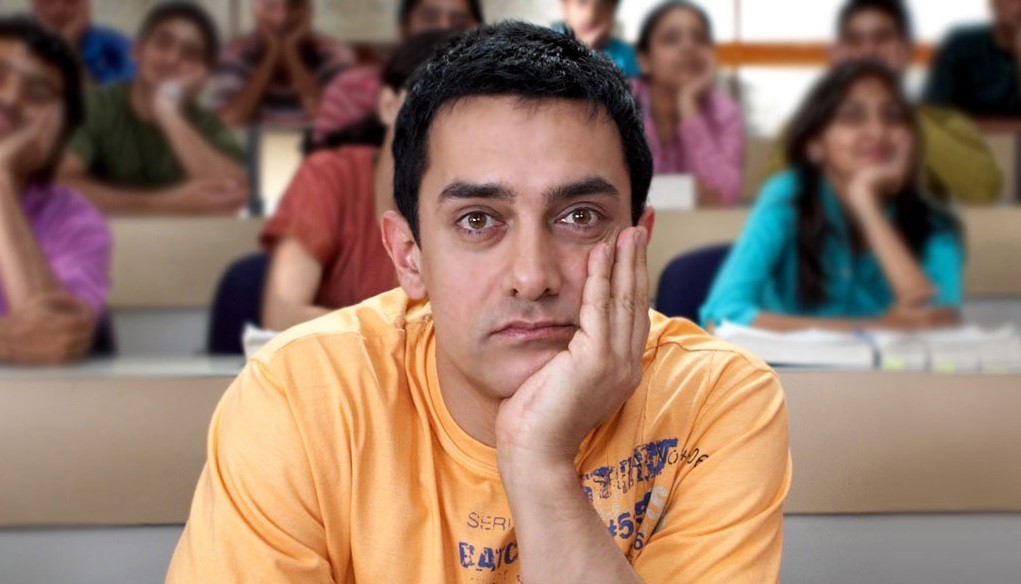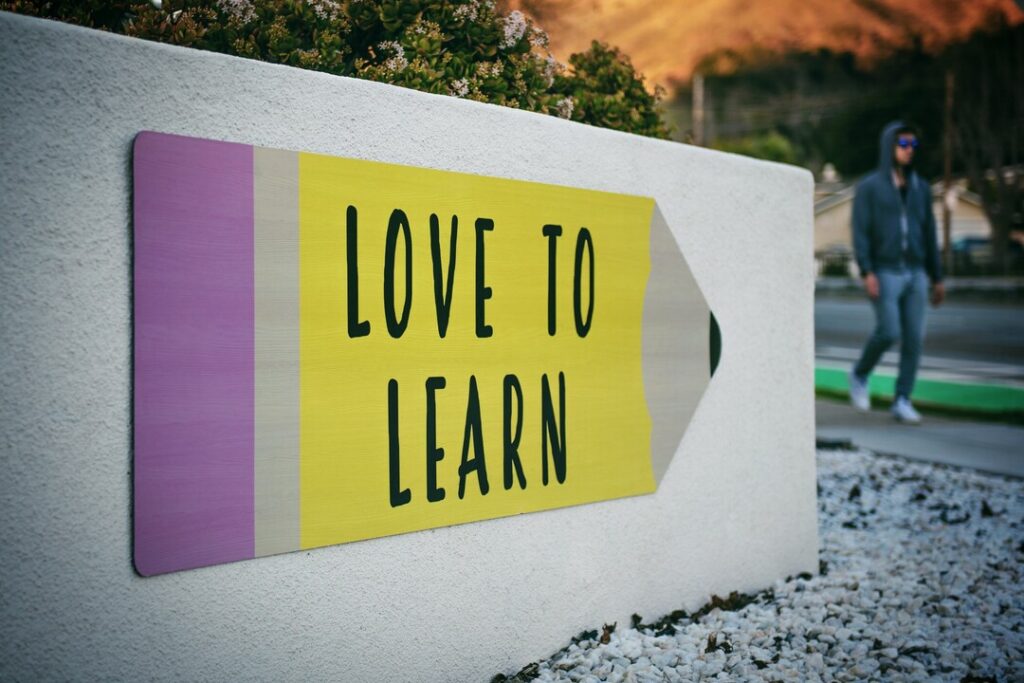My Grandpa, EMBIBE and a Tale of Social Emotional Learning

“What’s your favourite childhood memory?” She asked, a friend.
Now that got me into thinking. Flashbacks of this hero’s (oh yes, I am the hero of my life) childhood filled my vision. In black and white. Like they show in movies. The blacks and whites rearranged themselves – like it happens when you drop ink in a glass of water, but in reverse – to form a board of 64 squares – a chessboard.
I think that was one of my fondest childhood memories – playing chess with my grandpa, Daa.

I started playing chess when I was five or six. We didn’t have cable connections in our village. And Doordarshan was boring. So, our source of entertainment, at least in our household, in the evening was chess and books – two of the most beautiful habits I inherited from my otherwise ‘disordered’ (for the lack of a better word) family.
Daa and I would play chess for hours. Every day. It was like a ritual. And it would take me forever to make a move. And he would say, “You know you can’t do like that. Most chess tournaments are timed. It’s not just about the accuracy of your moves but also about your speed. Just like life.”
I think this was one of the best lessons I had learned from him, although it didn’t make much sense back then, in the context of life. But when I did understand, I also realised that when it comes to life, it’s more about ideal timing than speed. You don’t want to make silly mistakes by going too fast.
Daa would mess up with my mind too when we played. I was good at Maths. If I had a Math test in school the next day, he would say, while playing, “You are going to flunk tomorrow, you know? I can see it from the way you are playing.”
“Not now, Daa. Let me focus,” I would say while thinking about my next move.
“Life is also about multi-tasking. You cannot let the pressure of one task impact your performance in some other.”
Come to think of it today, this was his way of teaching me a very important aspect of Social Emotional Learning – Self-management – something I still suck at…
Incorporating Social Emotional Learning into a regular curriculum isn’t an easy task. Collaborative for Academic, Social and Emotional Learning defines SEL as ‘the process through which children understand and manage emotions, set and achieve positive goals, feel and show empathy for others, establish and maintain positive relationships, and make responsible decisions’. As you can see, these involve complex psychological processes, which when seen at a superficial level go beyond conscious intellectual activities.
To help children truly develop these skills so that they are better prepared for the real world, a granular level understanding of every child is a must. Because every child is different. And then based on the understanding, personalised coaching and guidance should be provided during:
- simulation sessions (that mimics real-world scenarios) and/or
- an activity that is an integral part of the regular curriculum (like solving questions; I will come to that in a while)
Now, there are two issues here:
- Let’s face it – not everyone, be it parents, teachers or anyone else, no matter how good their intentions are, is skilled enough to truly guide children in Social Emotional Learning.
- Even if they were, they just don’t have the time or the tools to truly understand the child and guide them accordingly.
Seeing a child poking a dog or a cat with a stick and telling them not to do it because you shouldn’t hurt others, is one thing and looking after the complete Social Emotional Learning of a child is an entirely different game.
Because Social Emotional Learning has five different pillars:
- SELF-AWARENESS: This is about understanding your own strengths and weaknesses objectively and seeing the impact of your behaviour on other people.
- SELF-MANAGEMENT: This is about regulating your own emotions and behaviours, including goal setting, time management, stress management, etc.
- SOCIAL AWARENESS: This is about understanding social and behavioural norms, recognising other people’s emotions, and empathising with others from different backgrounds and cultures.
- RELATIONSHIP SKILLS: This is about developing healthy relationships and clear communication skills.
- RESPONSIBLE DECISION-MAKING: This is about making independent choices, related to words, behaviour and actions, after careful consideration of social norms and differences, consequences and safety concerns.
Clearly, developing these skills involves complex processes that cannot fit naturally within the regular curriculum. Solving this problem, on a large scale, would require skilled mentors and technological intervention.
Embibe, from its inception, has been more than just an online test preparation platform. Performing well in exams is of course important but then again that’s not the sole purpose of education.
Education, in the true sense of the word, must ensure everybody develops all the necessary knowledge and skills required not only to ace exams but also to solve real-life problems, contribute to the development of the world, and improve their own standard of living. Social Emotional Learning, among other things, lies at the heart of it. Embibe’s product has been developed and is evolving keeping this purpose of education in mind. You see, for us, it’s not just about ‘learning outcomes’ but also about ‘life outcomes’.
Let’s elaborate on this with Embibe’s Practice module.
Getting the questions right isn’t enough when you are practicing on Embibe. The platform tells you, after every attempt, whether or not you utilised your time properly – Real-time Speed Vs. Accuracy Analysis. Every question on Embibe is tagged to difficulty level and ideal time to solve them among 63+ other parameters.
Based on the student’s attempt accuracy and time spent on the questions, we have defined six different types of attempts:
- PERFECT ATTEMPT: When a student attempts a question correctly in a time duration which is more than 25% of the ideal time but less than the ideal time, it is a Perfect Attempt. This is the ideal attempt type.
- OVERTIME INCORRECT ATTEMPT: When a student attempts a question incorrectly in a time duration which is more than the ideal time, it is an Overtime Incorrect Attempt. Here, the student loses both marks and time.
- OVERTIME CORRECT ATTEMPT: When a student attempts a question correctly in a time duration which is more than the ideal time, it is an Overtime Correct Attempt. Here the student gets the answer right but loses time.
- INCORRECT ATTEMPT: When a student attempts a question incorrectly in a time duration which is more than 25% of the ideal time but less than the ideal time, it is an Incorrect Attempt.
- WASTED ATTEMPT: When a student attempts a question incorrectly in less than 25% of the ideal time, it is a Wasted Attempt. Here the student doesn’t utilise the time properly and loses marks. It implies carelessness or even overconfidence.
- TOO FAST CORRECT ATTEMPT: When a student attempts a question correctly in less than 25% of the ideal time, it is a Too Fast Correct Attempt. Here, although the student saves time and gets the question right, it is not a good practice. The student is not utilising the time properly. This habit could result in careless or silly mistakes.
Every time a student attempts a question, the system points out what kind of attempt it is, thereby, forcing the student to put conscious effort into trying to maintain a balance between speed and accuracy – Self-management.
Like I said earlier, one of the ways to enable Social Emotional Learning is by providing personalised coaching and guidance during an activity that is an integral part of the regular curriculum.
Solving questions is an integral part of the regular curriculum and it makes complete sense to make use of this opportunity to teach something that goes beyond what textbooks and structured curriculum-based learning can teach.
Just like my grandpa used our Chess sessions, an integral part of our day-to-day life, to teach me something the application of which goes beyond Chess.
Embibe’s Test Feedback and its granular analysis of how a student has taken a test, pinpointing the minutest gaps in their knowledge, behaviour and skills, too is aligned with another pillar of Social Emotional Learning – Self-awareness.
Sure in both these examples, the product helps the students in the academic context but at the same time, I believe that long-term exposure to this product is bound to bring in certain positive changes in the users, as they apply the learnings to other aspects of life.
Of course, incorporating Social Emotional Learning wasn’t the sole purpose of adding these features to the product, but it was one of the reasons.
Social Emotional Learning @Embibe is still at its nascent stage. I am a writer. So, I couldn’t help but write it. Embibe will speak only when it’s time to say checkmate if you know what I mean. The future has some amazing things in store.
Anyway, I miss my grandpa…
(This article was first published on LinkedIn.)




